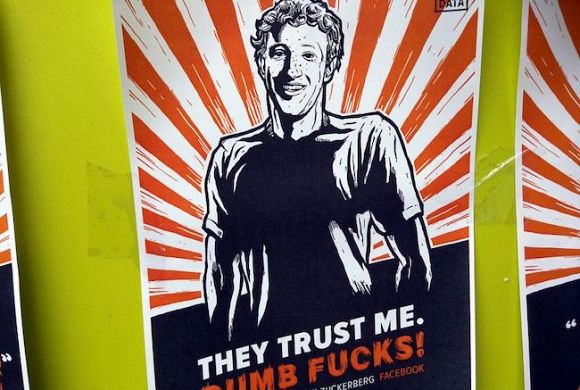Facebook stock has fallen dramatically, which could be the beginning of the end of the social media giant. Paul Budde reports.
IT WAS ALL OVER the news, so I am sure you have seen the dramatic beating that Facebook received at the New York Stock Exchange on Wall Street.
Facebook parent company Meta slumped more than 26 per cent, erasing more than U.S.$237 billion (AU$332 billion) in market value, the largest one-day drop in history, also taking U.S.$29 billion (AU$40 billion) off the personal wealth of founder Mark Zuckerberg.
So, let’s have a look at what this is all about. The writing has been on the wall for a while. The rather sudden change to Meta already indicated that the company was desperately looking for a new direction and a new image. This was largely driven by the fact that the company relies on advertising revenues generated on the mobile phones of its users.
The smart market is dominated by Apple and Google who control the smartphone operating systems and the app stores. Facebook’s dependence on these companies shows the underlying vulnerability of its business model.
Facebook and Instagram together reported about U.S.$115 billion (AU$162.3 billion) in ad revenue in 2021, advertising is estimated to account for 97 per cent of all company revenue.
Zuckerberg was very much aware of this. A decade or so ago, the company tried to enter the market with its own smartphone operating system. He realised that Apple and Google could make changes to their operating systems which could have a significant impact on their ability to maximise their advertising reach.
By 2019, they realised that they lost the battle with the Apple iOS and Google Android systems and Zuckerberg mentioned that the company’s attempt to enter the mobile market had been a bad bet.
Disaster struck Facebook last year when Apple implemented privacy rules. What these changes mean is that it is now much easier for iPhone users to stop apps from tracking their smartphone data. This is disastrous for Facebook and its advertising customers as it limits their ability to target people with pinpoint-accurate advertising. Apple’s change to its system clearly shows Facebook’s vulnerability here.
This month, the company reported a loss the order of U.S.$10 billion (AU$14.1 billion). While they didn’t directly link this to the Apple changes, it is safe to assume that this played a key role in this drop.
Another issue that made investors wary of the stock is that for the first time, the number of Facebook users has been dropping. Monthly active users were also down to 2.91 billion according to analyst StreetAccount. While Zuckerberg played this down, investors thought differently about that.
Zuckerberg, of course, foresaw something like this could happen after he failed to take control of the smartphone market. This most likely triggered the desperate jump into this Metaverse.
I call this desperate as the new direction is, in my opinion, more based on faith than on a solid business plan. I already questioned this when we discussed the original announcement. His vision of “the Metaverse” is some mix of virtual reality (VR) and augmented reality (AR) and he sees the internet and, in particular, the mobile networks being transformed in this Metaverse where people will use avatars along with other VR and AR elements.
As a network product, Meta would be independent of the smartphone operating systems. I am sceptical about this. Yes, there will most certainly be new developments in VR and AR but I can’t see that total networks will be transferred into VR networks.
This shaky business model had already spooked investors. They were further worried when data was released that showed that Meta’s Reality Labs – where Meta is developed – is spending billions of dollars on new technologies at a loss of U.S.$10 billion in 2021 and counting. This has been a drain on the company’s profit results.
Add all of this up and that became the straw that broke the camel’s back and caused the dramatic losses on Wall Street.
Facebook’s Meta gamble will either make or break the company. I doubt if what he wants to do is achievable, certainly not in the short to middle term. So how long will investors be willing to wait for results? In the end, the company depends on its investors and they are only interested in the company’s profitability — uncertainty is something the market doesn’t like. I would not be surprised if this would become the company’s downfall.
This could also mean massive changes to the social media market. This market is (outside China) totally dominated by Facebook. Are Apple and Google smelling blood? Are they going to move on Facebook? Chinese-owned TikTok is another company nipping on Facebook’s heels. As the Chinese are saying: May you live in interesting times.
Paul Budde is managing director of Paul Budde Communication, an independent telecommunications research and consultancy organisation. You can follow Paul on Twitter @PaulBudde.
Related Articles
- One person's metaverse is another's dystopian reality
- Facebook rebrand: Why Meta is not better
- Why I closed my Facebook account
- Michelle Pini interviewed by RTV Slovenia on Australia's Google and Facebook code
- Twin threats of Mark Zuckerberg and Josh Frydenberg damaging Australia
 This work is licensed under a Creative Commons Attribution-NonCommercial-NoDerivs 3.0 Australia License
This work is licensed under a Creative Commons Attribution-NonCommercial-NoDerivs 3.0 Australia License
Support independent journalism Subscribe to IA.















